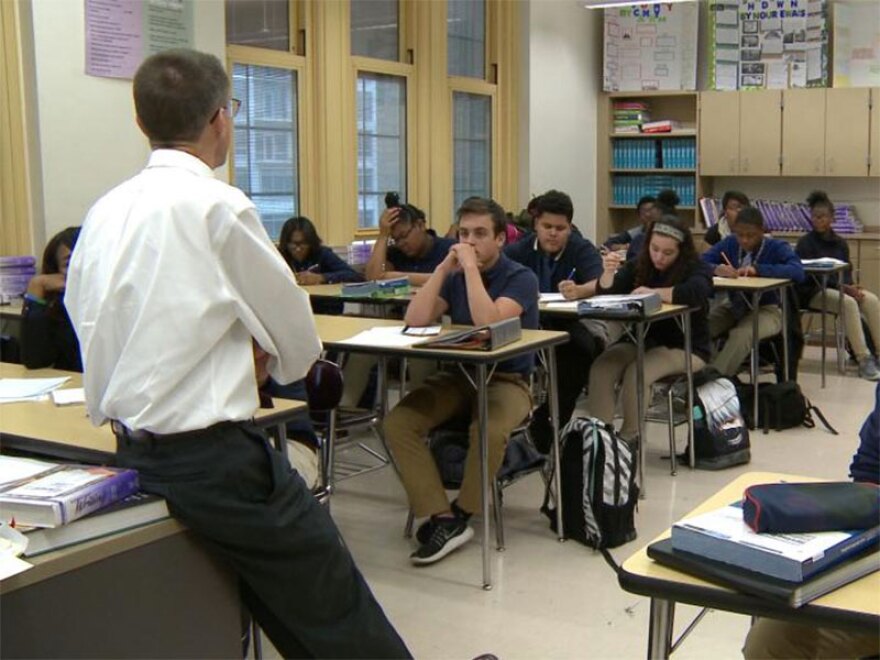Ohio high school students who want to take college courses on the state’s dime will have some additional restrictions to consider starting with the summer term.
Friday is the deadline for students at Ohio private schools or homeschoolers to apply for the state’s College Credit Plus program. Public school students faced an April 1 application deadline.
The program allows high school students to work on college degrees before they receive their diploma.
Starting this summer, though, students’ course choices will be slightly more restricted.
College Credit Plus Director Larisa Harper explained students will begin with courses classified as Level 1.
“These can be in general education coursework, or it can be in career education coursework that public institutions will recognize and readily transfer, or are even required to transfer from one institution to another,” she said.
Students must complete 15 credit hours, or pre-requisites, in Level 1 before moving on to more advanced courses in the new Level 2 category.
Level 2 includes most of the other courses available at a higher education institution, Harper said, but students are prohibited from taking physical education, religious, or study abroad classes or that involve one-on-one coursework, usually in the arts.
Harper said along with giving students a more guided college experience, the restrictions also ensure the state isn’t paying for courses that ultimately don’t help a student advance toward a certificate or degree.
For public school students, the classes are paid for by their local school district and for private and homeschooled students, by a special allocation from the General Assembly that totals $2.6 million for non-public and $1.5 million for homeschool students.
Another change to the program this year pertains to students who are underperforming or struggling academically.
“We really didn’t have anything in place to say you may not participate at a specific point if you’re not performing well,” Harper said.
New rules require CCP students maintain a 2.0 GPA in their college classes. If they drop below that threshold, Harper said they are placed on probation and can only take one course the next semester.
If a student’s GPA continues to drop, Harper said he or she will be dismissed from the program. Students, however, will have the option to appeal to be admitted again after a semester.
The 2018-2019 academic year marks the third in the CCP program. 65,000 Ohio high schoolers participated in the program in the 2017-2018 academic year.
The Ohio Department of Higher Education said to date, CCP has saved families $262 million in college tuition costs.





